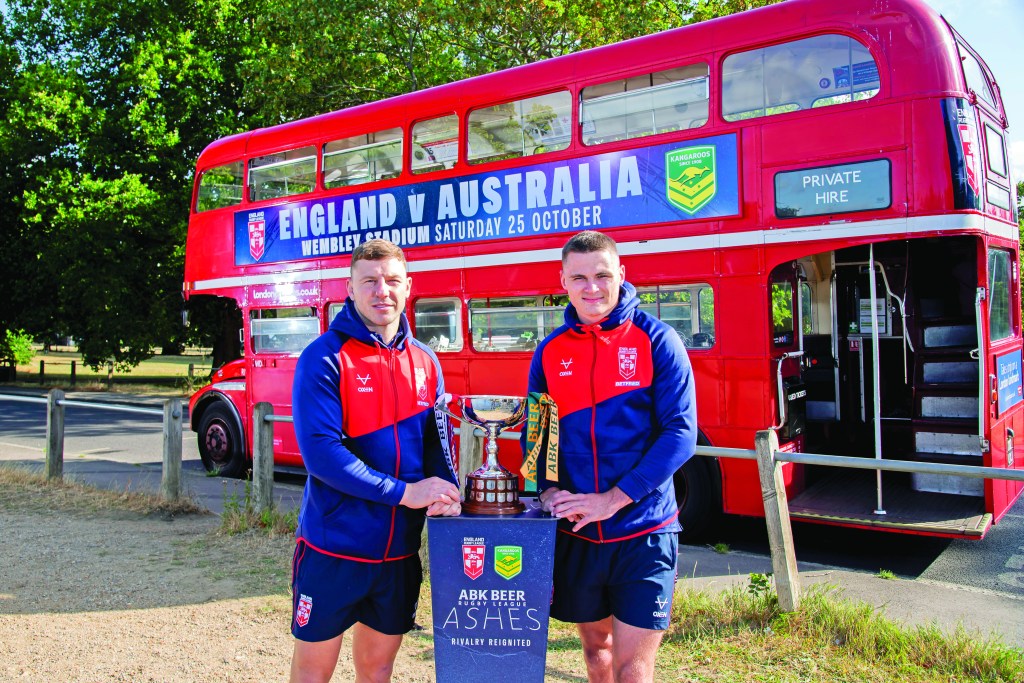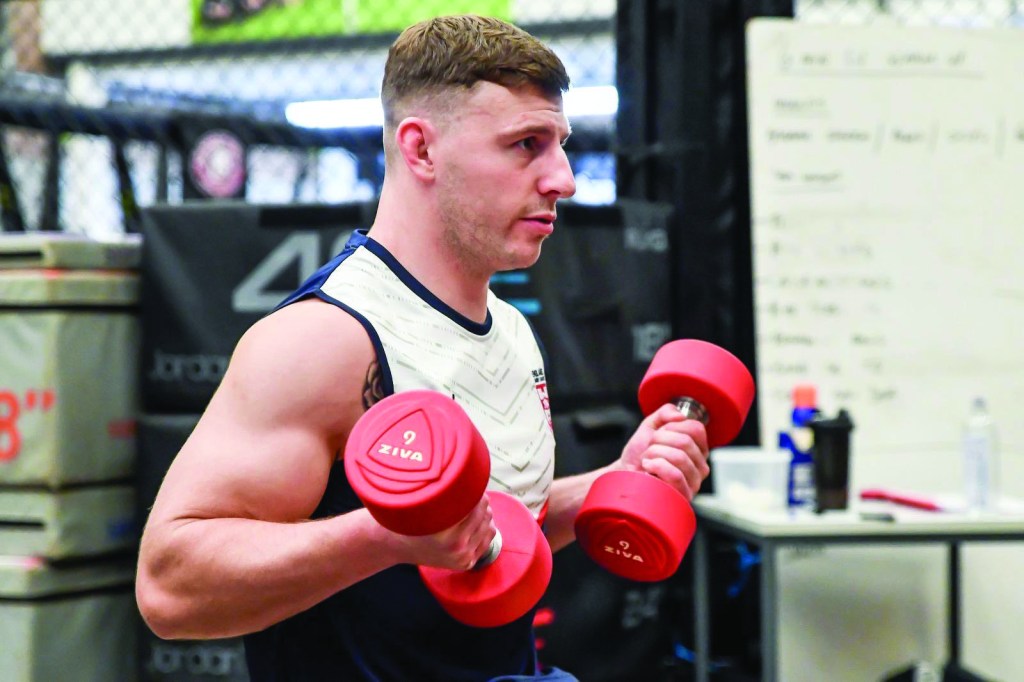With the Ashes starting tomorrow (October 25), St Helen’s and England rugby league’s Jack Welsby talks bouncing back from injury and staying explosive in rugby league
From explosive sprints to bone-rattling collisions, Rugby League demands a unique blend of raw power, stamina and speed. But what does it actually take to reach – and maintain – the peak of performance in one of the world’s toughest team sports? On the eve of the first Ashes match in 2025, England internationals George Williams and Jack Welsby lift the lid on their training, recovery, and the personal routines that keep them match-fit in the most punishing of seasons.
Men’s Fitness: Rugby League players look like walking contradictions – built like weightlifters, but running like sprinters. What’s the secret?
George Williams: You’ve got to be a good athlete now. In pre-season, we’re in the gym five times a week, but in-season it drops down – sometimes just once a week, because of games and recovery. It’s tough to keep the muscle mass on. I usually do extra gym on my day off to stay on top of it. Everyone’s different, but I need that extra session to feel right.
MF: What kind of gym work are we talking?
GW: Mainly the basics – squats, cleans – but we also do complex movements the strength and conditioning (S&C) coaches design specifically for rugby. Same with conditioning: we don’t just run laps. It’s sharp bursts, up and down, belly to feet, replicating what we do in a game. There’s always a method behind it.
MF: You clearly enjoy the work.
George: I do. Your body’s your tool in this game, and I want to look after mine. I’m 30 now, and I know when to go hard and when to focus on recovery. I love that side of it – not everyone does.

MF: Jack Welsby, you’ve had some well-documented injury setbacks. How has that shaped your training?
Jack Welsby: A lot. I’m recovering from a ruptured ACL which changes your perspective. I’m far more switched on with prehab now. It’s about building resilience as much as anything. I’m still quick, but I don’t take it for granted anymore.
MF: Has your gym work evolved as a result?
Jack: Big time. It’s not just about throwing big weights around. We do lots of single-leg and posterior-chain work – hamstrings, glutes, calves – to bulletproof the body. There’s a huge focus on moving well and explosively. Sprint mechanics are massive, too. You want your stride to be efficient and powerful without breaking yourself.
MF: How often are you in the gym?
Jack: It’s three to four times a week in-season – a mix of strength and power. We’ll do heavy lower body one day, upper another, then a lighter power-based day. But we’re also doing field sessions, video, recovery. It’s full-on. With my injury recovery it’s been much more measured and gradual of late.
MF: Do you both fully rest in the off-season, or keep training ticking over?
GW: I have two weeks off, then I get straight back into it. I even hired a personal coach last off-season to push me for six weeks. It was great – a different voice, fresh ideas, and someone to be accountable to. It helped me hit pre-season flying.
JW: I’m similar. I’ll take a break, but not for long. I usually keep doing my speed work and mobility, just to stay sharp. If I let everything shut down, I feel worse getting back into it. The longer you play, the more you realise how important consistent prep is.
MF: Recovery’s a massive part of elite sport now. What are your go-to tools?
GW: Ice baths are standard at the club – pretty much compulsory. We know they work, and if you skip it, you’re cheating yourself. After my recent ankle op, I used a machine called Game Ready – cold compression therapy. It’s brilliant. I was expected to be out 10 to 12 weeks and I was back in seven.
MF: Both of you are known for your explosiveness. How do you train that specifically?
JW: Speed’s always been my thing. I’ve worked with sprint coaches in the past and we do plyometrics – bounding, jumps, resisted sprints. Our S&C guys focus on being reactive and explosive off the mark. You’ve got to train the nervous system, not just the muscles.
GW: We’ve got Ade Gardner, our Head of Performance at Warrington, who’s huge on the plyometric stuff. It’s crucial in modern rugby. That first 5 to 10 metres can make all the difference. The more you train it, the sharper you get.

MF: Rugby League is brutal. How do you stay mentally motivated?
JW: It’s the love of the game, really. But also, after coming back from injuries, I just want to make the most of every season. An serious knee injury can be hard because you want to be playing and training and around the team. It’s mentally tough, thankfully the physio team have been great at keeping my spirits up. I want to play every week and hopefully make the Ashes team.
GW: Same here. I want to prolong my career and stay at the top for as long as possible. So I’ll do the extras – gym, recovery, off-season work. I’ve got goals: play-offs, a Grand Final, and England selection for the Ashes. That’s what drives me right now.
• The Ashes starts tomorrow – visit The Home of Rugby League (rugby-league.com) for more information







